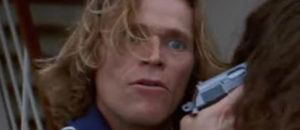Critical Mass is a new feature here on the blog where Luke and Aaron argue about newly-released movies. It’s simply a free-flowing conversation where emails are exchanged, battles are waged, and tempers flare. It’s all in fun, of course. We kick off the inaugural edition with a discussion of the new John le Carré adaptation ‘Tinker Tailor Soldier Spy’, directed by Tomas Alfredson (‘Let the Right One In‘). One of us liked it and the other didn’t. We’ll start there.
Aaron: How in the world can you not like this movie? It’s slow and methodical, but so was ‘The American’ and you really liked that movie. It’s hard for me to understand how you can like ‘The American’ and not enjoy the hell out of ‘Tinker’. So I ask you to explain your stance on ‘Tinker’, and do it now or George Smiley will hunt you down.
Luke: ‘Tinker Tailor’ isn’t terrible, but it sure isn’t great either. From the opening of the film, hardly anything is explained. You never know what’s going on. It’s nearly impossible to make a movie without expository scenes. Even Quentin Tarantino talks about having to use them, despite hating them. But they are necessary. And this highly-complex film doesn’t feature a single one. After talking to other members of the Utah Film Critics Association, I learned that none of us walked out of that screening completely understanding everything that went down in the movie. We’re not all super-spy geniuses, but the filmmakers sure expect us to be. This film is so confusing that you’re never quite certain exactly what’s going on. ‘The American’ was a mood-based film. You didn’t need to know what was going on to follow it – and when it became integral to follow the story, there were expository scenes.
Aaron: Psh! Saying ‘Tinker’ doesn’t have expository scenes is like saying Michael Bay will, in the future, make a movie without a single explosion. It just isn’t true. Expository scenes serve a purpose to expound on the plot and provide otherwise unknown information. In ‘Harry Potter’, these scenes come in the way of dreams or visions that Harry has with the help of Dumbledore and his nifty magical seer do-hicky in his office. Here, the expository scenes come in the way of flashbacks provided when George Smiley is listening to different people explain what they know. No, it doesn’t come out and explain every tiny detail, but neither does it leave you completely in the dark. The flashbacks provide the much-needed exposition.
Also, you bring up “mood-based film” in regards to ‘The American’. Do you not think ‘Tinker’ had a certain mood that it established? I thought its mood was everything. Dark, mysterious and suspenseful.
Luke: Sure, ‘Tinker’ is full of flashbacks, but none of them help us conclude anything. There are too many characters and way too much going on to give anyone in the audience the slightest chance of piecing together the puzzle on their own – which takes a large chunk of fun out of the film. In a mystery movie, if you can’t piece together the puzzle on your own, it’s not as engaging. That’s how I felt the entire time, disengaged.
When my screener for ‘Tinker’ arrived in the mail last week, it came with a dossier on the mole-hunting case at hand. I learned more about the movie from reading that big old piece of paper than from watching the movie. With admission to the movie, theaters should hand out the same press kit for audience members to read through before the movie begins. Otherwise, 95 percent of the audience will never know what the hell is going on.
I didn’t find ‘Tinker’ dark, mysterious or suspenseful. None of the hundred characters are ever fleshed out. The only one who has any charm or talent is Hardy’s, but he’s barely in it. His name in the credits should be Tom Hardly. The word to describe this movie is “confusing.” And from what everyone else is saying, I’m not the only one who feels this way. It’s hard for a movie to carry a tone when you can’t follow what’s going on. The tone of ‘The American’ was generated by its melancholy and mysterious central character, not so much the story.
I literally didn’t connect with a single element in this film. It was just a “watch and see how it pans out” movie for me. What reeled you in and kept you interested? Were you able to piece any of the puzzle together on your own?
Aaron: I didn’t have trouble following it. Compared to other spy thrillers today, it’s probably comparable to swimming through honey, but at the end I found the story clicking into place. I was drawn in by Oldman’s performance and the mood, which you say wasn’t present.
With a 90 percent rating on the Tomato Meter I wonder if everyone is saying what you’re actually saying they’re saying. The film was slow and deliberate, but with purpose. It holds its cards close to its chest and doesn’t reveal its hand right away. That’s something that should be lauded, not condemned.
I enjoyed ‘Tinker’ and I’m with the majority of critics on this one. I only say that because it was brought up that everyone apparently agreed with this point of view: “The word to describe this movie is ‘confusing.’ And from what everyone else is saying, I’m not the only one who feels this way.”
I’ll give you the last word Luke.
Luke: I’m not saying it’s a terrible film. On technical merits, it exceeds most. But the problem with it can be narrowed down to its screenplay – one that doesn’t allow the audience to play along. In a mystery film, I expect to be allowed to use my mind to uncover the “bad guy.” But ‘Tinker’ doesn’t let you do anything but spectate, which defeats the purpose of mysteries. Imagine going to a murder mystery dinner (which I find dreadful) and NOT being allowed to play along. You’d just eat and watch a bunch of second-rate thespians improvise the night away, then tell you whodunit in the end. Aside from the second-rate actors and giving you something to chew on, that’s all ‘Tinker’ does. I understand why people love it. It’s brilliantly conceived, but not brilliantly executed. A well-made movie must also have a well-written script. One without the other is pointless.





William Henley
I love this new column. I hope you guys keep it up!
Aaron Peck
AuthorThanks. Glad you like it. It’s fun to do.
Also, future entries will include polls for people to vote on which critic they agree with. We had the poll included here, but decided to take it off this one time since ‘Tinker’ has such a weird opening schedule. It’s likely that many people won’t see it open in their town for weeks or even a month. So it’d be hard for people to vote in a poll without actually seeing the movie.
Luke Hickman
We’ll keep them coming! Maybe a ‘Dragon Tattoo’ version next week?
Aaron Peck
AuthorAlso a shout-out goes out to reader/commenter JM who suggested this idea in a comment a few days back and we ran with it.
JM
I look forward to more of these.
Well played.
Adam Stansifer
it’s okay aaron, luke doesn’t seem to like anything!
/sarcasm
Luke Hickman
I get that a lot!
EM
Let’s get Mikey…he hates everything.
JM
You know what’s wrong with ‘Waiting For Godot’?
The lack of exposition.
JM
‘Tinker Tailor Soldier Spy’s screenplay was written by award-winning playwright Bridget O’Connor, who died last year.
Calum
If you consider that the definitive adaptation here is the BBC’s 315-minute TV version from 1979, I’m not surprised that a movie version might suffer a bit in translation.
I’ve yet to see it, so thanks much for the comments.
EM
This talk of a convoluted mystery plot reminds me of The Big Sleep, particularly the 1946 film adaptation, which has a reputation for confusing audiences. Supposedly the filmmakers were so baffled by one of the murders that they asked the author of the original novel, Raymond Chandler, for the solution—and he didn’t know either! Even if that’s true, I tend to think it would be because he’d moved on to other projects and forgotten some of the details of this one. The first time I saw the movie, I was a little baffled but impressed. A second viewing cleared things up for me. Sometimes I forget about the details, but a fresh viewing always clears things up. Maybe this Tinker movie is like that?